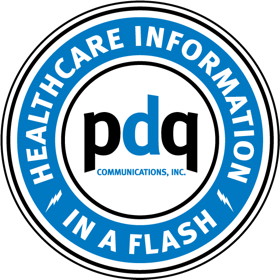There’s no doubt that the HCP marketing industry has undergone significant changes throughout the...
Marketing to healthcare professionals (HCPs) requires a fundamentally different approach than consumer healthcare marketing, even though both may focus on health benefits and outcomes.
While consumer healthcare marketing often emphasizes personal wellness, lifestyle improvements, and direct health benefits, marketing to healthcare professionals demands a more complex, evidence-based methodology reflecting these professionals' unique roles in patient care.
Key Takeaways
- Evidence-Based Decision Making: Unlike consumer decisions driven by personal experience, HCP marketing must address evidence-based determinations focused on clinical efficacy and patient outcomes.
- Strategic Channel Selection: While consumer marketing leverages broad-reach platforms, HCP marketing requires a strategic multi-channel approach, with email proving particularly effective for clinical content delivery.
- Trust Through Expertise: HCP relationships are built through consistent delivery of evidence-based insights over time, rather than the emotional connections that drive consumer marketing.
Understanding HCP marketing meaning is essential, as healthcare professionals evaluate marketing content through clinical evidence, professional responsibility, and patient care protocols一creating specific requirements for how they engage with marketing content.
For pharmaceutical companies seeking to connect with HCP audiences effectively, recognizing these fundamental differences is the first step in developing successful engagement strategies.
Professional Decision-Making Process
When it comes to healthcare, the evaluation process for professionals is fundamentally different from that of consumers.
How Consumers Make Decisions
According to research published in the online scientific journal Nature, consumer healthcare decisions are heavily influenced by personal experiences, recommendations from friends and family, and broad perceptions about healthcare products and services they’re considering.
How HCPs Make Decisions
In contrast, marketing to healthcare professionals must address their evidence-based framework. HCPs evaluate marketing content from various professional perspectives: clinical efficacy, patient outcomes, practice protocols, and regulatory compliance. This typically unfolds over a longer time period than with consumers, as HCP marketing focuses on building sustained, long-term relationships rather than quick conversions.
This more systematic approach means that marketing strategies generally require substantial supporting evidence. HCPs expect access to clinical data, research validation, and peer-reviewed studies that support any marketing claims. They need to understand not just what a product or service does but how it integrates into their existing clinical workflows and how it aligns with established medical protocols.
Additionally, HCPs must consider institutional policies, insurance requirements, and healthcare regulations. This creates a more complex evaluation framework than consumer healthcare decisions, requiring marketers to address multiple layers of professional consideration.
Communication Channels and Preferences
The channels for marketing to HCPs differ significantly from consumer marketing pathways. While consumers engage through general social media platforms and broad-market advertising, effective HCP marketing requires a more targeted approach.
This includes:
- Strategic email campaigns
- Professional LinkedIn outreach
- Direct mail
- Targeted digital advertising on healthcare-specific websites
- Healthcare conference sponsorships
Among these channels, email marketing has proven particularly powerful for reaching HCP audiences, enabling the delivery of detailed clinical information and research updates directly to their inboxes. Alternatively, direct mailers are an excellent alternative for prospects with digital fatigue who may be less receptive to virtual marketing channels.
Time management also remains crucial in HCP channel selection. Healthcare professionals operate under strict schedules, making it essential to deliver content through channels that enable them to engage at their convenience. This differs significantly from consumer marketing, where engagement can be built through multiple daily touchpoints.
In short, the most effective HCP marketing strategies leverage multiple channels simultaneously, creating touchpoints that reinforce key messages and expand brand awareness across platforms. This integrated approach helps build stronger recognition while providing various opportunities for HCPs to engage with your brand.
Content Requirements and Expectations
Content development for HCP marketing requires a distinct approach from consumer health content.
While consumer health content typically emphasizes simpler explanations, relatable examples, and easy-to-understand terminology (think WebMD or health magazine articles), HCP-focused content must maintain professional depth while remaining concise and actionable.
Healthcare professionals expect content that:
- Provides clear clinical relevance
- Demonstrates understanding of professional workflows
- Addresses specific practice challenges
- Offers evidence-based solutions
- Is consistent with regulatory requirements and best practices
However, this doesn't mean sacrificing clarity一rather, it means maintaining professional sophistication while delivering practical value.
Relationship Building and Trust Factors
Building relationships with HCP audiences differs fundamentally from consumer relationship building. Professional credibility in marketing to healthcare professionals relies heavily on demonstrated expertise, peer validation, and consistent delivery of valuable insights.
Unlike consumer relationships, which might be built more through brand personality and emotional connection, HCP relationships develop through professional respect and proven value.
Trust in HCP marketing is established through:
- Consistent delivery of evidence-based content
- Recognition within professional networks
- Understanding of clinical challenges
- Demonstrated expertise in healthcare solutions
Building Success in HCP Marketing
The distinct nature of marketing to healthcare professionals requires a specialized approach that differs significantly from consumer healthcare marketing. Success depends on understanding and respecting these differences—from decision-making processes to content requirements and relationship-building strategies.
Given the complexity of HCP marketing, partnering with experienced healthcare marketing specialists becomes essential. PDQ Communications brings deep expertise in HCP engagement, having successfully helped pharmaceutical companies and healthcare organizations build lasting relationships with healthcare professionals through sophisticated, data-driven marketing strategies.
For organizations seeking to effectively engage HCP audiences, working with experienced partners who understand the nuances of professional healthcare marketing can mean the difference between missed opportunities and campaign success with measurable results.
Ready to enhance your HCP marketing strategy?








